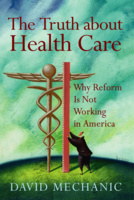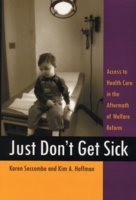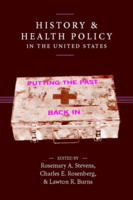The Contested Boundaries of American Public Health
The Truth About Health Care
Why Reform is Not Working in America
Tuberculosis and the Politics of Exclusion
A History of Public Health and Migration to Los Angeles
Abel’s revealing account provides a critical lens through which to view both the contemporary debate about immigration and the U.S. response to the emergent global tuberculosis epidemic.
Just Don't Get Sick
Access to Health Care in the Aftermath of Welfare Reform
Community Health Centers
A Movement and the People Who Made It Happen
Suffering in the Land of Sunshine
A Los Angeles Illness Narrative
The Dilemma of Federal Mental Health Policy
Radical Reform or Incremental Change?
Fighting For Our Lives
New York's AIDS Community and the Politics of Disease
Fighting for Our Lives is the first comprehensive social history of New York's AIDS community-a diverse array of people that included not only gay men, but also African Americans, Haitians, Latinos, intravenous drug users, substance abuse professionals, elite supporters, and researchers. Looking back over twenty-five years, Susan Chambré focuses on the ways that these disparate groups formed networks of people and organizations that-both together and separately-supported persons with AIDS, reduced transmission, funded research, and in the process, gave a face to an epidemic that for many years, whether because of indifference, homophobia, or inefficiency, received little attention from government or health care professionals.
History and Health Policy in the United States
Putting the Past Back In
In History and Health Policy in the United States, seventeen leading scholars of history, the history of medicine, bioethics, law, health policy, sociology, and organizational theory make the case for the usefulness of history in evaluating and formulating health policy today. In looking at issues as varied as the consumer economy, risk, and the plight of the uninsured, the contributors uncover the often unstated assumptions that shape the way we think about technology, the role of government, and contemporary medicine. They show how historical perspectives can help policymakers avoid the pitfalls of partisan, outdated, or merely fashionable approaches, as well as how knowledge of previous systems can offer alternatives when policy directions seem unclear.
Together, the essays argue that it is only by knowing where we have been that we can begin to understand health services today or speculate on policies for tomorrow.









